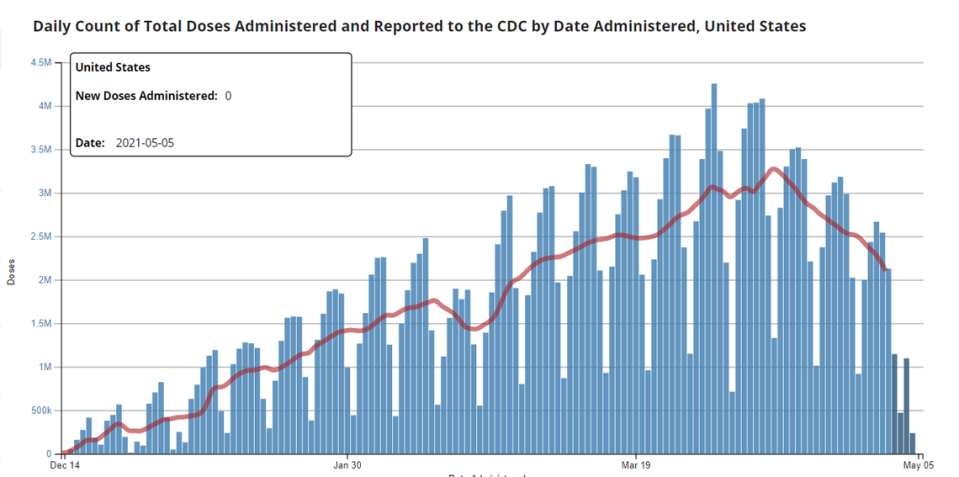Unvaccinated people may be COVID variant ‘incubators,’ Bill Nye says: ‘It’s not fair’
Although millions of Americans are getting vaccinated against COVID-19 each day, the daily number of administered doses has been on a steady decline in recent weeks. And some experts are worried the decrease in demand could slow the country’s progress on the pandemic.
Some say daily vaccinations have dropped because more people have received a shot, but others say hesitancy is playing a larger role.
Bill Nye “the science guy” told MSNBC’s Mehdi Hasan on Sunday that the more people who refuse to get a shot, the more opportunities the coronavirus has to mutate into more dangerous variants.
“It will vary in that person and then that could infect me, and that’s not fair, right?” Nye tells Hasan. “Everybody on the other side says, ‘It’s not fair to make me wear a mask. It’s not fair to make me get vaccinated.’”
“Well, it’s not fair to everybody else if you become an incubator for a variant, doggone it,” he adds.
Since the onset of the pandemic, scientists have found five coronavirus “variants of concern,” two of which first emerged from California. The others were first discovered in the U.K., Brazil/Japan and South Africa. All but one are more contagious than the original coronavirus strain that emerged from Wuhan, China.
Nye said the common idea among people who are against COVID-19 vaccines that “everybody has the freedom to do anything” is “not exactly right.”
“You can’t yell ‘fire’ in a crowded theater if there’s no fire and so on. You can’t drive on both sides of the road even though you pay taxes on both sides of the road,” Nye said. “When it comes to anti-science, it takes time. Don’t expect to change [a] person’s mind the first time, but stick with it, because I think as people see the advantages of being vaccinated, they will want to get vaccinated.”

Dr. Rishi Goyal, an assistant professor of emergency medicine at the Columbia University Irving Medical Center in New York who is leading a project on COVID-19 vaccine hesitancy, said the topic of safety plays a big role. His project is focused on developing public health messaging that encourages vaccination by breaking down language on social media platforms to understand people’s emotions and attitudes about the shots.
He told McClatchy News people are also basing their concerns on their political views and using terminology “similar to abortion and pro women’s rhetoric.”
“It’s quite possible that if you hadn’t gotten the vaccine, you would have gotten a more severe case of COVID-19. But that’s different from what people believe. People’s beliefs and attitudes often don’t have a lot to do with rational science,” Goyal told McClatchy News. “The risk and reward it’s pretty obvious in terms of vaccines from a public health perspective. Without a doubt, across-the-board, getting vaccinated will help you individually and help those around you.”
Biden announced a new goal on Tuesday for 70% of the U.S. adult population to have one vaccine shot and 160 million U.S. adults to be fully vaccinated by July 4, “so that life can start to look closer to normal.”
More than 107.3 million Americans aged 16 and older are fully vaccinated as of May 5, about 32% of the population, according to a Centers for Disease Control and Prevention tracker.
Can you safely gather with vaccinated people if you’ve already had COVID? What to know
How risky are indoor spaces during COVID pandemic? This tool helps you figure it out
Vaccinated people can now do these things safely, CDC says in updated COVID guidance

